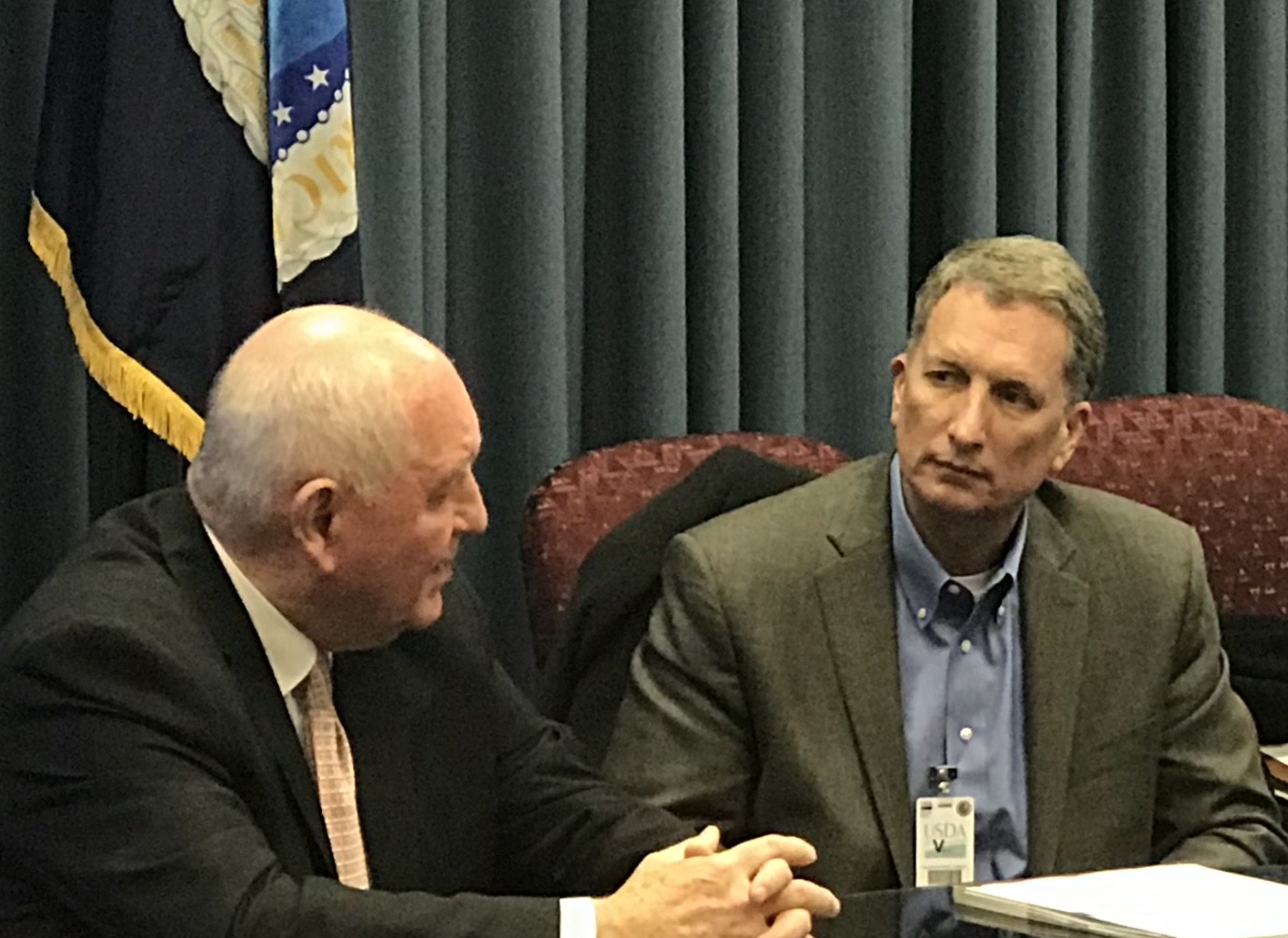
Written by: Sarah Novak | October 22, 2024

Having been with the American Feed Industry Association for many years, I have the honor to work with some of the most interesting and amazing leaders in the animal food industry. While I’m happy for them as they near retirement, I’m also sad to see them go. Here’s an interview with one such titan of the industry, Rob Brock. Rob is officially retiring at the end of the year after a very robust career (more than 40 years!) in the animal feed industry, most recently as President of Westway Feed Products in The Woodlands, Texas. He has served two terms on AFIA’s Board of Directors and is a strong supporter of our Liquid Feed Committee and Symposium. Below is our conversation.
Q: Can you share a bit about how you started in the animal food industry and what inspired your career path?
Brock: I did not grow up on a farm but had a Great Uncle and Aunt with a diversified farming operation in my hometown. I spent a lot of time on the farm, and particularly with the livestock, as a youngster. In college, I loved my animal science courses but was unsure what a career might entail. My college advisor helped me understand the opportunities within agribusiness. I was a summer intern with Ralston Purina and went to work for them after graduation. I was there for 31 years before moving to Westway. I have always enjoyed the people within the industry and working around animals. It has been a very rewarding career.
Q: Over the course of your career, what have been the most significant changes in the cattle industry?
Brock: One of the advantages of working with Purina was the diversity of the marketplace available to a company that manufactured feed for literally every animal group. However, most of my time was spent within the dairy and beef business. Early in my career, every farm was relatively small, and most were well diversified. You worked directly with each owner, and they depended heavily on feed companies for nutritional advice. As operations became more focused and much larger, they leaned more on a private nutritionist. Commercial feed no longer was purchased through dealers but was sold direct to the farm. Feed companies developed their own nutritional and technical teams to support the sales groups. I miss the days when farms were smaller, and relationships were with the farming families. There is a significant demographic change occurring as the Baby Boomer generation retires and fewer younger generations find agriculture interesting or compelling. Progress has meant production efficiencies that help us feed the world, but I still miss the simplicity that was once there.
Q: As you are nearing retirement, could you discuss one or two of your proudest achievements?

Brock: I realized early as a leader that building a strong team was paramount to long term success. I also learned that your strongest performers want to be surrounded by success and that they will help you recruit these talented people. Over the years I have relocated 12 times, and each move meant the opportunity to build out a team that could drive success. Any business accomplishments in 41 years have been the result of a high performing team that was developed over time. Successful team building is very satisfying.
Q: What is the single most important trait you have seen in people who are or are becoming great leaders?
Brock: The ability to develop a shared vision and hold each other accountable. Understanding the importance of sincere and transparent communication across the organization is also key. Perhaps the most important thing is the ability to build trust. An organization can accept a lot of shortcomings in a leader, but they must first trust the leader.
I realize that is more than one trait, however, it is difficult to boil it down.
Q: What do you see as the biggest challenge the liquid feed industry will face in the future?
Brock: I see ingredient availability as being a big issue. We depend heavily on cane and beet molasses and their derivatives. There are several additional key ingredients, however, I believe our growth could be limited by a lack of ingredient diversity and availability down the road. We are always looking for new ingredient streams. A dry feed business has many, many ingredient options as well as a large volume of basic feedstuffs. In the liquid business, we are not as fortunate, and formulation can be limited.

Q: What would you tell someone about a career in the animal food industry?
Brock: We are foundational to the needs of 8 billion people. If your stomach is empty, then nothing else matters. It is a very exciting time to be involved in the agriculture industry and anyone choosing this field will find very relevant and important opportunities. We do not market ourselves very well to those with little to no agricultural background. If a young person is looking for career opportunities, then they should look at our industry. Agriculture was seen for many years as a basic, low-tech career option. That is no longer the case. I will argue that it is the most important industry of the future.
Q: What is the first thing you are going to do once you are fully retired?
Brock: The first 30 days I plan to rest my mind and read a good book. There is a very thick volume on Ulysses S. Grant sitting on my shelf and ready to go. After so many years of thinking about business almost non-stop, it may take me awhile to create a new habit of relaxation. I have committed to supporting Westway for 12 months post-retirement and will also serve on the board of a small company. I look forward to a schedule that allows much more time for family, friends and hobbies.
Comments See our policy on comments